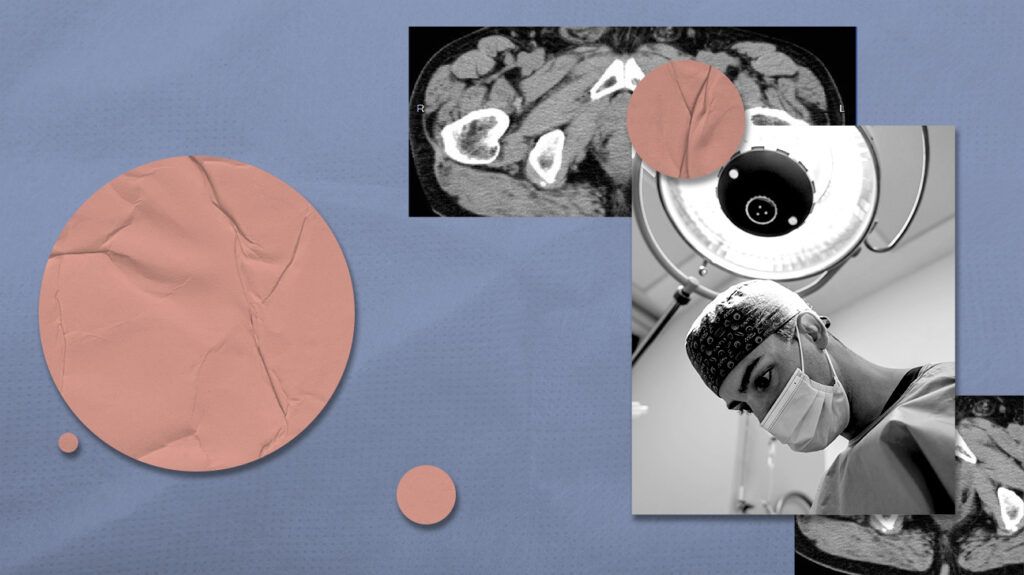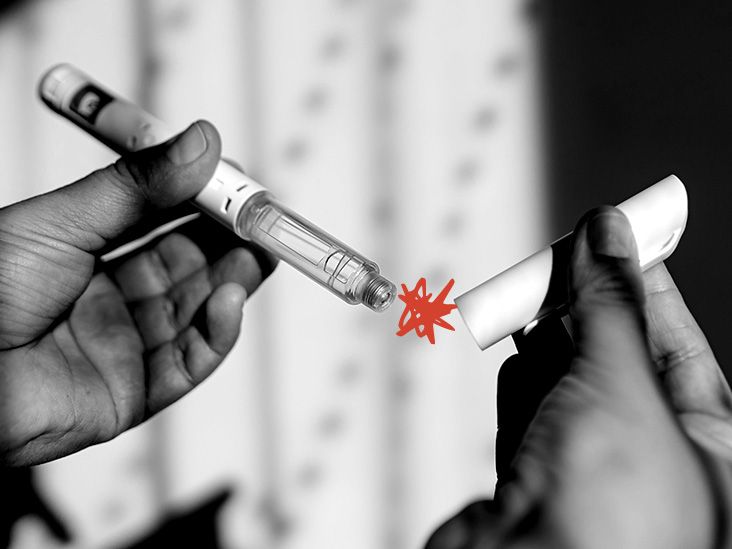An inguinal hernia can become stuck, or incarcerated. Without treatment, this can lead to strangulation, causing the tissue inside the hernia to die.
An inguinal hernia occurs when part of the abdominal cavity pushes into a part of the body called the inguinal canal. The abdominal cavity is the large hollow space in the body that contains many important organs, such as the stomach and liver.

According to the
When an inguinal hernia becomes stuck (incarcerated), its contents bulge through the abdominal wall, and a healthcare professional is unable to massage it back inside.
Without treatment, an incarcerated inguinal hernia can become a strangulated hernia. When this happens, blood flow to the tissue can be cut off, which can cause the tissue inside the hernia to die off.
If a part of the small intestine is inside the hernia, it can also become incarcerated and strangulated. This can then cause intestinal obstruction and the death of the strangulated part of the small intestine.
A person should contact a doctor if they notice symptoms of an inguinal hernia. These include:
- a bulge in the groin
- a bulge in the scrotum
- discomfort, pain, heaviness, or burning sensations in the groin
The
If a person already has an inguinal hernia, they should contact the emergency services if they experience the following symptoms:
- a bulge that is larger than it was
- a bulge that does not go back inside the abdomen
- skin discoloration around the hernia
- fever
- sudden or severe pain
These are signs that the hernia has become incarcerated or strangulated. A strangulated hernia will need emergency surgical repair.
If the small intestine becomes stuck, a person may experience symptoms such as:
A
- having obesity
- chronic cough
- straining due to constipation
- heavy lifting
After receiving an inguinal hernia diagnosis, a person may benefit from:
- achieving and maintaining a healthy BMI
- eating a balanced diet, drinking plenty of water, and consuming enough dietary fiber to help prevent constipation
- contacting a doctor to diagnose and treat potential causes of chronic cough
- avoiding heavy lifting or strenuous activities that might affect the stomach
Treating an inguinal hernia is not always necessary, especially if the hernia is not causing symptoms. This is because the risk of incarceration or strangulation appears to be low.
However, some healthcare professionals may recommend surgery to repair the hernia before complications arise, particularly in hernias that are causing symptoms such as pain.
People should speak with their doctor about any concerns and discuss all the available options with them. If the individual and their doctor decide that surgery is not the best option, the person should follow up with the doctor as they recommend.
If an inguinal hernia becomes incarcerated or strangulated, a person
A surgeon may perform open or laparoscopic surgery. Open surgery involves making an incision in the abdomen, and laparoscopic surgery involves making several small incisions and inserting instruments into the abdomen.
If there are signs of tissue death, a person may require antibiotics.
Recovery will depend on the procedure type and the hernia’s severity and size. It can take 4 to 6 weeks to recover from surgery to repair an incarcerated or strangulated inguinal hernia. During this time, a person should avoid heavy lifting.
A person can try the following to help them recover:
- take painkillers to manage pain
- ensure the wound is covered, clean, and dry
- apply gentle pressure on the wound when coughing or sneezing to reduce pain
- take part in gentle exercise, such as walking
- take 2 weeks off work or 6 weeks if the job involves heavy lifting
After surgery, the person should check for any unwanted changes that might indicate that an infection is developing.
Symptoms include:
- skin discoloration
- swelling
- heat
- drainage
- worsening pain around the incision
An inguinal hernia can become incarcerated. This means the hernia becomes stuck, and a healthcare professional is unable to push it back inside the abdominal wall.
Without treatment, this can lead to a strangulated inguinal hernia. The blood flow to the tissue is cut off, and the tissue in the hernia can die.
It is also possible for a part of the small intestine to become stuck and strangulated, causing intestinal obstruction and the death of the strangulated part of the small intestine.
If a person notices any symptoms of a stuck or strangulated inguinal hernia, they should contact the emergency services as they will require emergency surgery.


